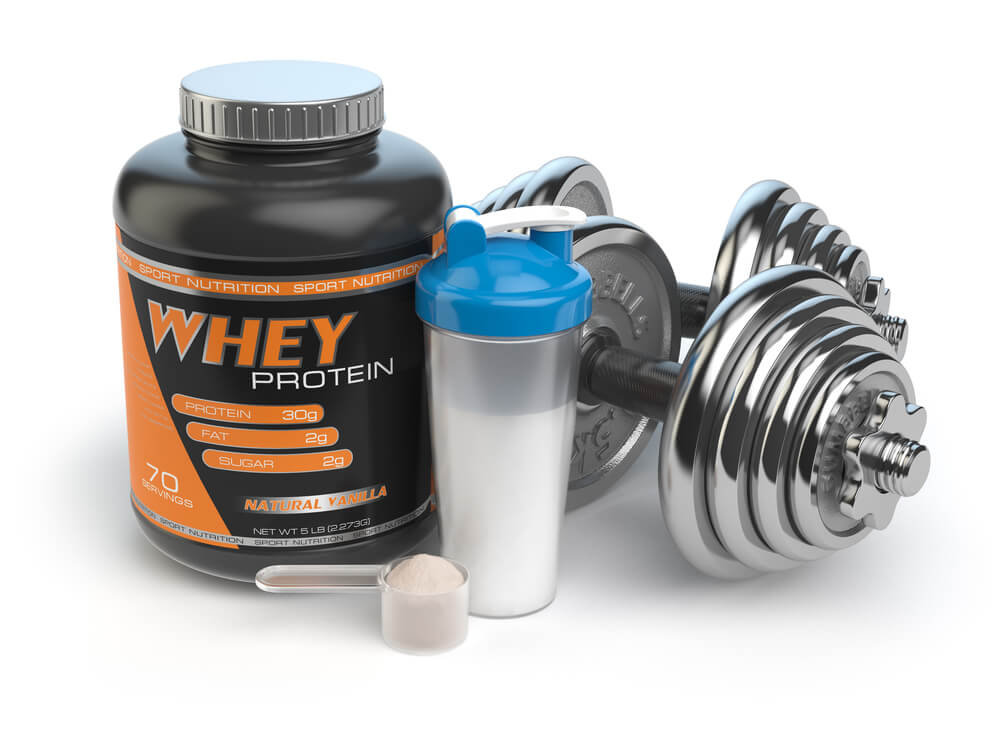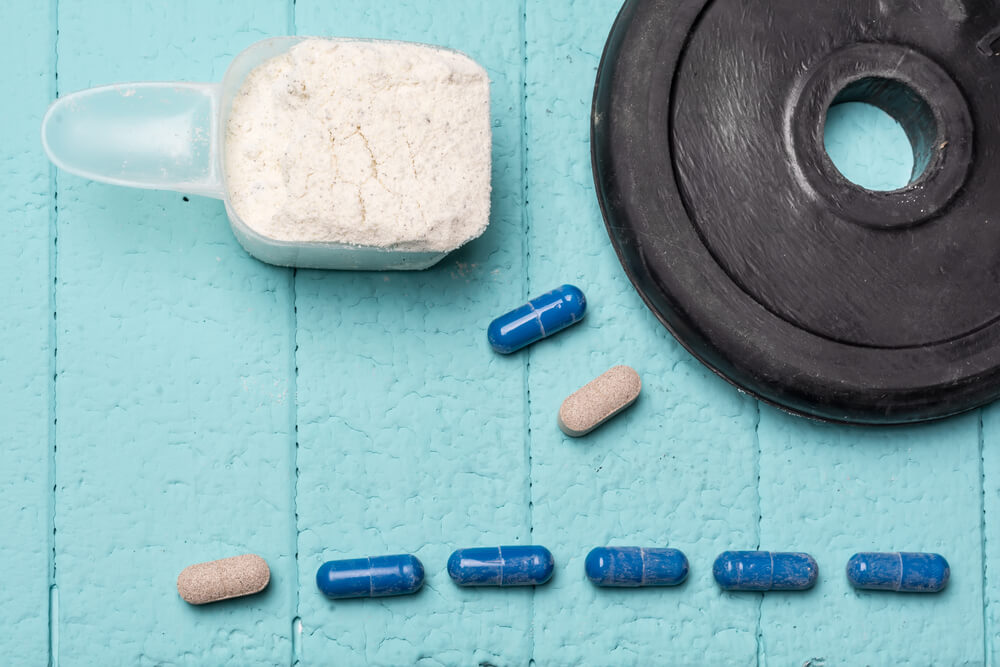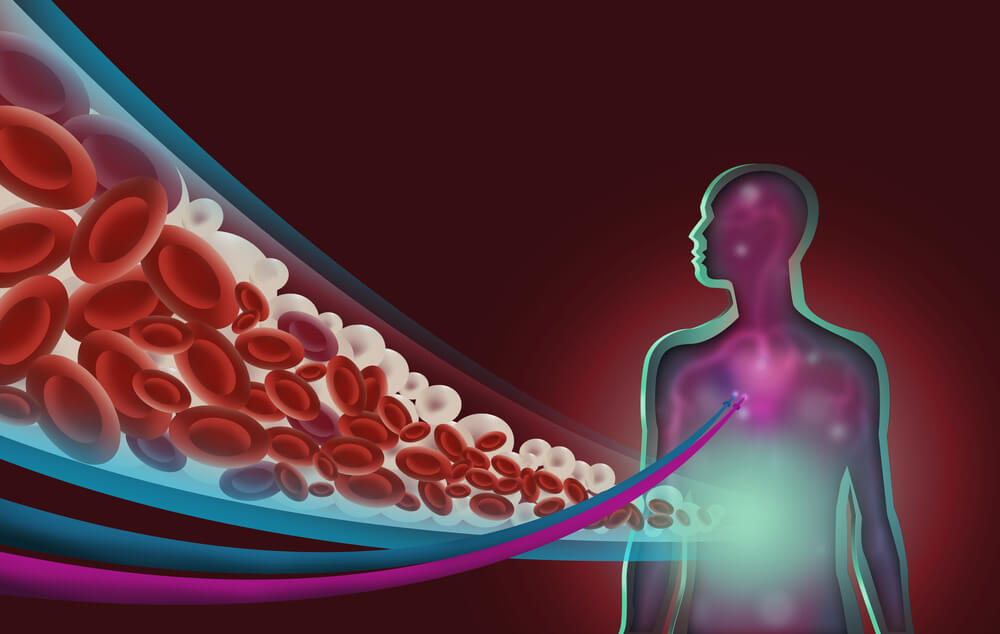
Have you ever tried stacking supplements? Do you even know what it means? How do you do it? What factors should you think about? You’ve got questions. We’ve got answers.
A supplement stack is simply what we label the group of supplements that a person takes each day to support their needs and goals. Whether you are a book smart genius, a bodybuilder, a baseball player, a laid-back retiree, a gardener, a weekend warrior or anything in between, the combo of supplements you take to improve your performance is referred to as your stack.
While the goal should be to stack supplements that work in tandem with each other and with whole food to create the best nutrient delivery possible, a random collection of supplements could be called a stack as well.
What separates a supplement from a standard food item is often a process of isolating an ingredient, or a few of them, from a whole food to garner the benefit of those often concentrated and compounded ingredients without having to take in all the other contents of the whole food from which the supplement was derived.

What’s The Point Of Taking And Trying To Stack Supplements?
This question begs an answer that is very debatable. The simplest reason is that given our modern food production practices and top soil quality, the food we have at hand is simply too lacking in nutrients to fulfill the many needs of the outrageously complex bio-machinery of the human body.
In the 1930s, Weston A. Price said that the soil was so devoid of very vital nutrients, like phosphorus and calcium, that it was simply not possible for a person to fulfill their nutritional requirements on animal protein and veggies alone. Weston was a dentist who traveled the world. He did so to study a range of cultures’ nutritional practices and the effect their food had on dental and bone health.
When you take into account that this was the case in the 1930s, you can picture how dire the soil situation is today with such a great food demand for a much bigger global populace. The soil feeds the plants and the plants feed the animals. The animals and plants feed humans.
If the base of the food-nutrient chain is devoid of needed nutrients, then it is not possible to make up that deficit without some supplemental help. And that is why supplements have their place in our diets.
How Should You Approach It?
Knowing this need, the unregulated, multi-billion dollar supplement industry has grown at mind-blowing rates since the mid-20th century. And due to this lack of regulation, it is very easy for supplement companies to stick misleading labels on their bottles and even offer products with worthless fillers to boost the weight of the product without increasing their costs. So, it is vital that you approach your supplement stacking with patience and be willing to put in some research before buying products.
To advise taking specific supplements without knowing your needs and lifestyle habits would be foolish. But, there are a few supplements that are widely acknowledged by experts for being valuable and needed for most people regardless of discipline or goals. Vitamin D3, creatine, a pure omega-3 supplement (specifically EPA/DHA), prebiotics and probiotics and good quality protein powder are a few of them.
Let’s say you are a rather fit person who works out in some fashion on a standard basis and you feel like you could use a little bit of a boost. First, take note of the keys listed toward the end of the article before considering your supplementation. Sleep quality will have the biggest impact on you.
What Should You Consume?
Not sure what supplements to take?
Assuming you eat pretty healthy, there are some vitamins and supplements to consider. Don’t worry. We’ve got all of them listed for you.
Vitamin D3 is involved in hundreds of biological processes in your body both as a main and supporting actor. Making sure vitamin D levels are enough is always a good move. The average person will benefit from at least 2,000 IUs per day. If you spend extended periods of time outdoors with much of your skin exposed, you might not need D3 supplementation. Of course, that’s something you can test your blood for. Many choose to cycle vitamin D3 according to their sun exposure. Test and see.
Omega-3 fatty acids are essential. The only way your body acquires them is through diet. Most researchers believe that the primal human, the hunter-gatherer, most likely had an omega-6 to omega-3 fatty acid ratio of 1:1 up to maybe 3:1.
Omega-6s and omega-3s work opposite each other. They do so to create the best internal environment for immune function, cardiovascular function, brain function, reproductive function and so much more.
The average estimated omega-6 to omega-3 ratio of people living in the western world is somewhere between 20:1 and 40:1 – omega-6 dwarfing omega-3. This results in stiff and inflamed blood vessels, thick and sludgy blood, systemic inflammation, a tremendously hyper-responsive immune system, cognitive decline and so many more issues.
An easy and oversimplified way to think of it is that omega-3s help us remain soft, smooth and relaxed internally. Meanwhile, omega-6s help us keep enough rigidity to not turn into a glob of oil. We need equal parts to thrive. We can even thrive with slightly more hardness, but 20:1 and up to 40:1 in favor of hardness is just hard to live with.
Taking a pure omega-3 supplement can help balance the ratio. That’s especially the case if you, at the same time, work to reduce your intake of high-omega-6 foods – mainly vegetable oils, seed oils, hydrogenated oils and trans fats. The dose of omega-3 depends on the quality of the product and the internal environment of the body ingesting it. Sources with the most bioavailable omega-3 are fish oil, krill oil, cod liver oil, algae and small fish.
Creatine got a bad rep in the 90s.
Why?
Bad info. Massively beneficial to brain health and now shown to be good for the liver, creatine is a supplement that we should all think about taking. Five grams per day is the standard dose. That is one full scoop in most cases.
Know Your Gut!
In the last few years, the focus on gut health has really transformed the whole nutrition and health field. They are learning that the health of the GI tract has perhaps as much impact on your health and daily moods and actions as your brain does. That is quite a bold statement.
Knowing how vital the health of your gut is, you must treat this organ and its trillions of little bacterial and fungal inhabitants with some tender love and care. A high-quality probiotic will help create an ideal breeding ground for the types of microbes that we want to populate the gut, while making it hard living conditions for the microbes that cause us harm and poor health. As well, a high-quality probiotic will help populate that gut with those helpful and healthy microbes.
Everything affects gut health, from physical activity to the floor you sit on, to the objects you touch on a daily basis and the friends and family with whom you interact with. So, these supplements are just a very small part of a much bigger picture when it comes to gut care.

What About Protein Powder And BCAAs?
The need of a protein powder and/or BCAAs (Branched Chain Amino Acids – the building blocks of proteins that are quickly absorbed) will depend on your diet. In Western countries, it is very rare for someone to be too low in their protein intake. It is typically the lack of supporting nutrition that creates an environment where protein intake does not equate to protein use. That’s why few people will badly need a protein supplement. But if you feel better after using one, then have at it.
There are too many different types of proteins to cover. The typical ideal window for the most effective use of protein is within 45 minutes after your workout. That is when it seems the body is most primed to use dietary protein to rebuild damaged muscle cells.
There are pre-workout, peri-workout and post-workout supplements. There are also cognitive supplements like nootropics. Then there are natural sleep-improvement supplements. As well, there are healthy fat burn inducing supplements.
Of course, there are other vitamins and minerals. But if you eat a very healthy and nutrient rich diet, and you consider the supplements we just listed, then anything else will simply be a small benefit, though not unimportant, that you seek out for your own needs.
Here Are Some Vital Keys To Think About
Your supplemental needs will be entirely unique to you and only you. The best way to find out what you need is to get blood tests that look at your vitamin and mineral levels. But one blood test might not be enough.
Why?
We have different stress triggers, sleep quality, states of mind and emotions each day. Each input we experience will change the way our body uses and requires nutrients. Get tested. You may want to do it a few times.
No supplement will ever cover up or replace poor habits. For a supplement to work, all lifestyle and nutrition habits must first be optimized. For example, when you have high levels of inflammation, the conversion and use of vitamin D is blunted. So you could be supplementing with all the vitamin D in the world and experience no benefit from it due to the systemic inflammation.
This is true for many vitamins and minerals. If your body is in a state of emergency internally, the focus is on that big emergency. All other optimization tasks are irrelevant until the big problems are fixed. Dr. Bruce Ames refers to this order of preferences as the “triage theory.” That is where the much-needed benefits of a nutrient can only be experienced once base-level needs are met.
Take a look at your needs and goals before you decide what supplements to take. And once you’ve figured it out, decide whether it will pay off in the long-term or create a dependency that you’d rather not have years later. For example, a lot of people like pre-workout supplements that are loaded with caffeine. These not only boost energy, but they often increase blood flow to target areas via vasodilation, increased heart rate and more.
That is all well and good if that is your need, but what happens if you, for some reason, are forced to train without your pre-workout?
Are you mentally weaker now during that training session because you feel like that crutch isn’t there?
Does this dependency make you stronger or weaker in the long term?
Does this pre-workout hurt your sleep quality, thereby undermining your performance on a macro scale despite feeling good during the workout?
What are the pros and cons?
You need to answer these questions to have a better outcome over the long term.
A top-notch supplement company will let you know the details about the quality and sourcing of their product. After all, it separates them from the rest of the pack. Look for detailed language.
Avoid companies that use a lot of hyperbolic, eye-catching language that really doesn’t tell you about the product itself. The better the product, the less selling the company will have to do and the more revealing they will do to honestly communicate their intentions with each product.
Conclusion
In a perfect world, we would not need any supplements. Our soil would be nutrient dense and all the life forms that live off that soil would be healthy and nutrient-dense as a result.
Our food would have more nutrition than we could ever ask for and we would need less food volume because of its higher nutrient content. The world isn’t perfect. Some supplements are needed for most people. Take some time to find your unique needs and supplement with confidence.
By Jeff Andrews
Terry
Latest posts by Terry (see all)
- How Important Are Net Carbs For Building Huge Muscle? - Apr 28, 2017
- The Matt Damon Workout Explained - Apr 27, 2017
- Watercress – Benefits And The Best Way To Consume It - Apr 26, 2017









